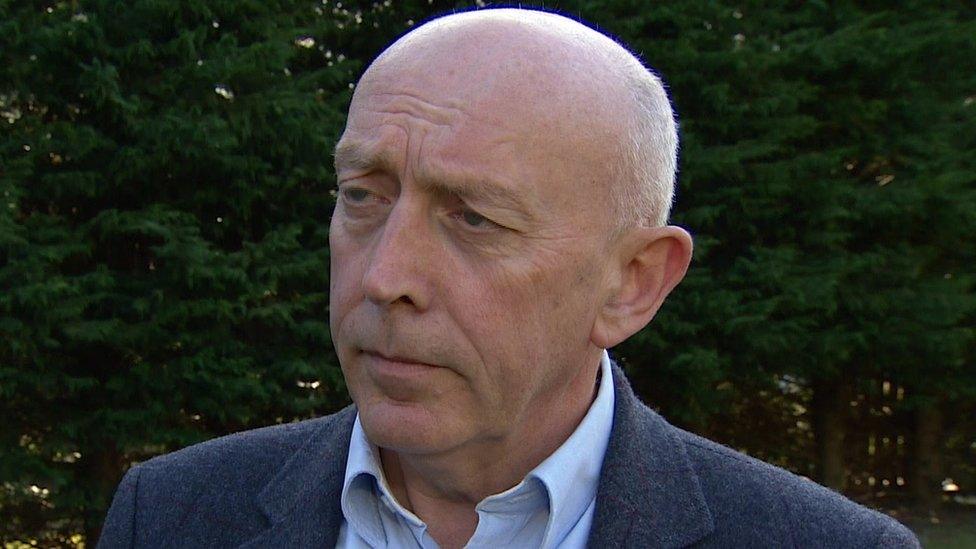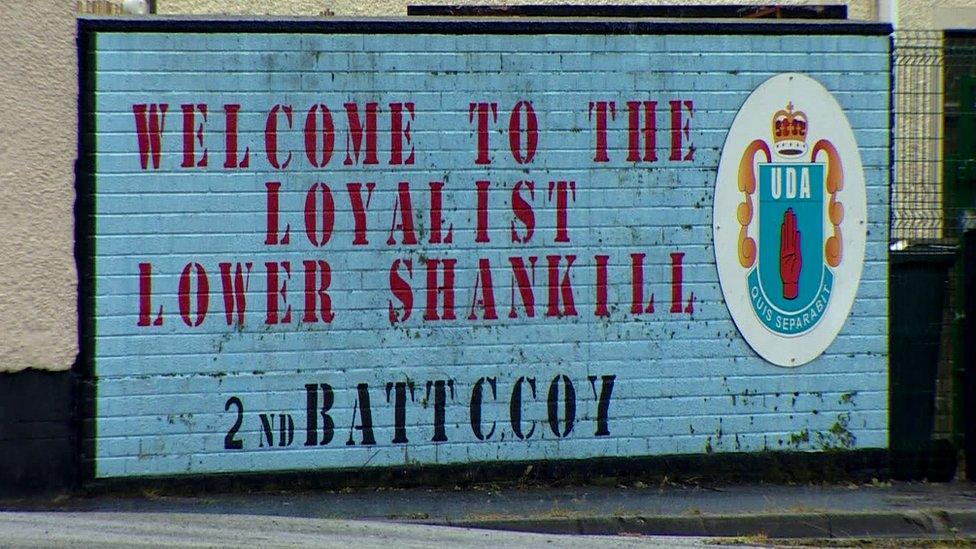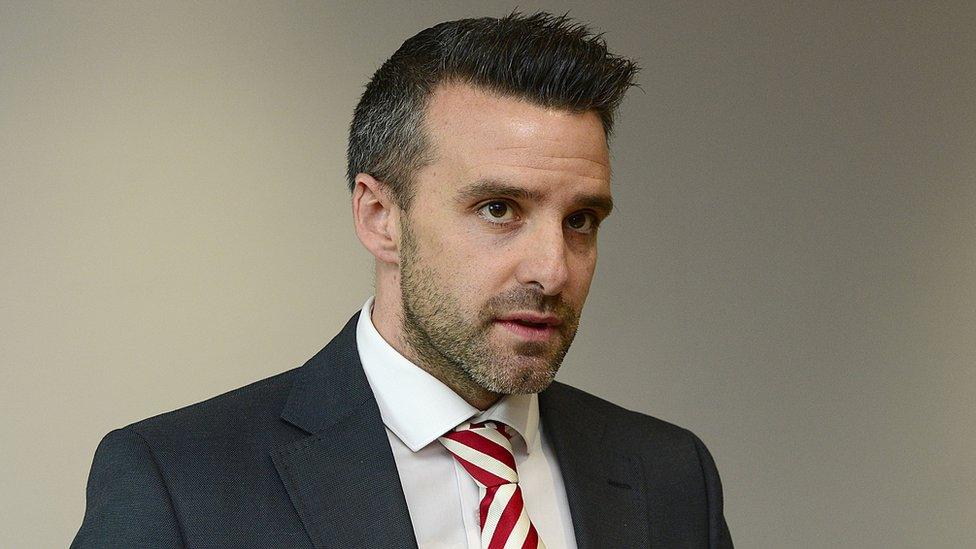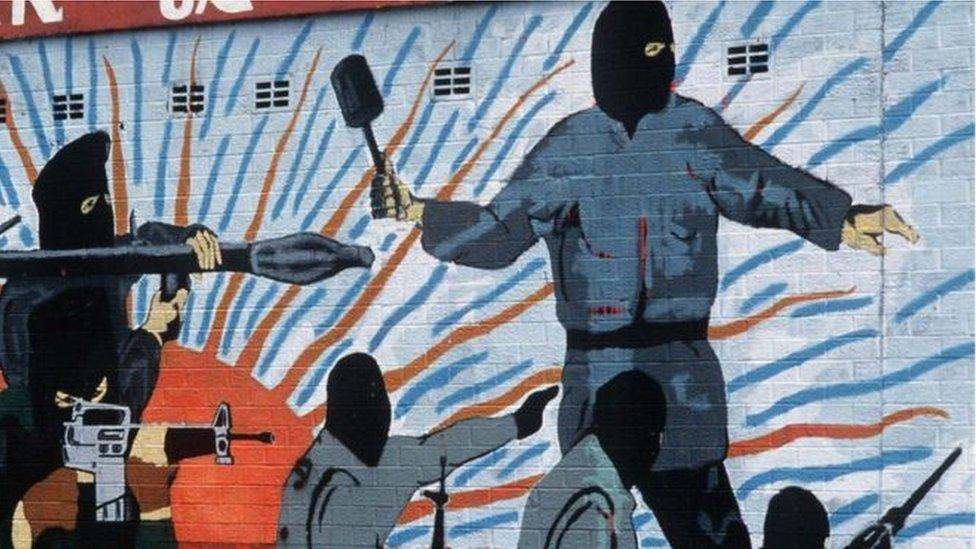NI paramilitaries 'just organised criminals'
- Published

Peter Sheridan said the use of the term paramilitary risked legitimising organised criminals
People should stop using the term "paramilitary" when referring to what are just organised criminals, the head of a peace building charity has said.
Peter Sheridan of Co-operation Ireland said the term runs the risk of legitimising criminals' influence on communities.
He was speaking as the Organised Crime Task Force (OCTF) said paramilitary groups were extorting small businesses.
The report said thousands of businesses could be victims.
Mr Sheridan, a former senior police officer, said a paramilitary murder was a murder the same as in other parts of the UK, and a paramilitary assault was the same as any assault anywhere.
"Somehow, when we treat them differently, we run the risk of legitimising it in some people's eyes," he said.
"We need to re-brand Northern Ireland, We are the only community that I know of that talks about paramilitary organised crime as if they are somehow separate.
"Post-1998 and the Good Friday Agreement, thereafter people are, in my view, in organised crime gangs."
Mr Sheridan said that the so-called paramilitaries had nothing to do with the former conflict in Northern Ireland.
"It is about turf wars, it is about internal feuding, it is about ordinary criminality - it is nothing to do with the conflict that they are involved in," he said.
"Yet we continue to separate out these two things as if they are somehow different."

Mr Sheridan said that so-called paramilitary groups were engaged in turf wars, internal feuding and ordinary criminality
In its annual report, the Organised Crime Task Force (OCTF) said the extortion includes racketeering of building sites in towns and cities.
Illegal money lending is also believed to be continuing.
Det Supt Bobby Singelton said a range of businesses have been threatened with extortion.
"They include small businesses, the likes of nail bars, tanning salons, restaurants and fast food delivery."
He said that many businesses "fear the repercussions of engaging in the criminal justice process".
The report said that offenders are using the internet and social media to carry out extortions.
Attacks can vary from ransomware attacks to sextortion, a form of sexual exploitation online.
Increase in criminal seizures
According to the OCTF annual report, there was a rise in criminal asset seizures last year.
In total, the taskforce seized £1.9m worth of criminal assets.
The seizure of illegal drugs was also up by 24% from 5,500 in 2016/17 to 6,872 in 2017/18.

Det Supt Bobby Singleton said many businesses "fear the repercussions of engaging in the criminal justice process"
The taskforce dismantled, frustrated or disrupted 183 organised crime groups, an increase of 42%.
However, Det Supt Singleton said that about 100 organised crime gangs are operating in Northern Ireland - a quarter with links to paramilitaries - and most deal in the drugs trade.
The taskforce, which was established in 2000, also helped rescue 36 potential victims of modern slavery.
'Making NI a safe space'
Criminal assets recovered from convicted offenders are reinvested for the benefit of the local community, according to Anthony Harbinson, Department of Justice director of safer communities.
More than £947,000 was returned directly to law enforcement agencies, Public Prosecution Service and Courts Service to enhance further recovery of criminal assets.
Mr Harbinson said that significant progress is also being made in protecting people and businesses against cybercrime.
"Ultimately, to end the harm that is caused by organised crime and paramilitarism, we need a whole-societal response," said Mr Harbinson.
"I call on everyone to play their role in making Northern Ireland a safe place where we respect the law and each other by reporting crime and suspicious activity."
- Published27 September 2017
